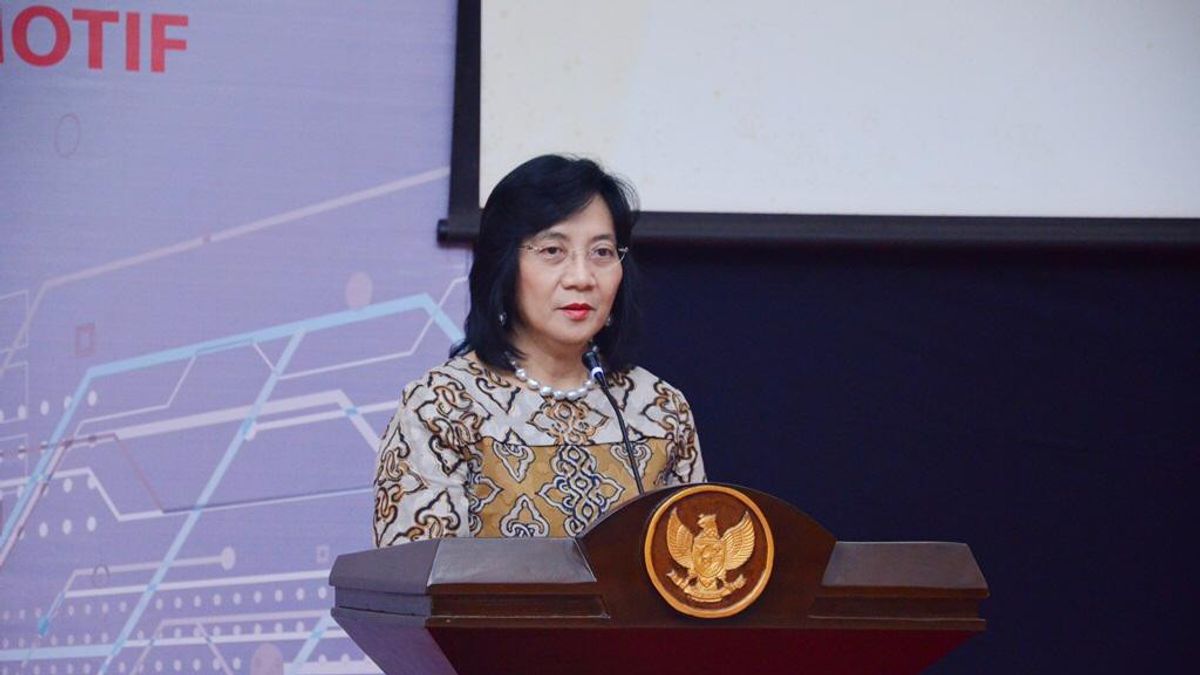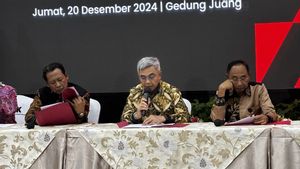JAKARTA - The corona virus pandemic or COVID-19 is increasingly spreading in Indonesia. As the virus spreads, many small and medium industries (IKM) have been affected. In fact, not a few who ended up going bankrupt, because they could not survive.
The Ministry of Industry continues to strive to assist, and support the sustainability of SMIs, in dealing with the impact of the COVID-19 pandemic in Indonesia.
Director General of Small, Medium and Various Industries (IKMA) of the Ministry of Industry, Gati Wibawaningsih, said that the Ministry of Industry had identified all the challenges faced by IKM in all sectors. One of them is the automotive IKM, which contributes quite a lot to manufacturing growth and the national economy.
From the data collected by the Ministry of Industry, said Gati, IKM of supporting automotive components and spare parts is still in production. Although, most of them experienced a decrease in demand from vendors, brand holder agents (APM), to customers, where the level of dependency was very high.
"For example, if Honda and Yamaha stop production, the potential loss is around Rp. 2 billion for IKM members of the Karawang Engineering Entrepreneurs Association (APEK)," he said, through a written statement received by VOI, in Jakarta, Sunday, April 5.
Furthermore, Gati said, one of the IKMs that was ready to anticipate the impact of the spread of COVID-19 was PT Gading Toolsindo. They predict that if there is a lockdown or regional quarantine for two weeks, the business will suffer a loss of around IDR570 million. Meanwhile, if the lockdown occurs for one month, the losses incurred could reach Rp1.3 billion with a credit interest expense of Rp.480 million.
Gati explained that the data also showed that distribution and delivery access could still run along the national toll roads, namely Jakarta-Cikampek and Pantura, which were still accessible.
As for some of the obstacles faced by component and spare parts SMIs, said Gati, among them was the higher price of raw materials, due to the influence of the dollar exchange rate.
Not only, said Gati, other obstacles faced are the scarce availability of masks and hand sanitizers, as well as the high cost of infrared thermometers and disinfectant spray equipment. In fact, this equipment is needed to carry out health protocols when carrying out production activities to prevent the spread of COVID-19.
On the other hand, said Gati, regarding the government's appeal to work from home or work form home (WFH), it cannot be fully applied to non-production employees. This is because there are limited facilities, such as the unavailability of portable computers or laptops at home.
"However, several efforts have been made in order to support physical distancing. Then, we will propose to postpone credit / loan payments and employee salary subsidies," he explained.
According to Gati, several automotive component IKM which are members of the Indonesian Small-Medium Automotive Component Industry Association (PIKKO) already have a network of suppliers from abroad, such as PT Eran Tekniktama which has a supplier network for mask-making machines from China.
Gati revealed that the IKM hopes to get a machine import permit from China for the production process of making masks, and then the results are donated to the community.
The English, Chinese, Japanese, Arabic, and French versions are automatically generated by the AI. So there may still be inaccuracies in translating, please always see Indonesian as our main language. (system supported by DigitalSiber.id)













